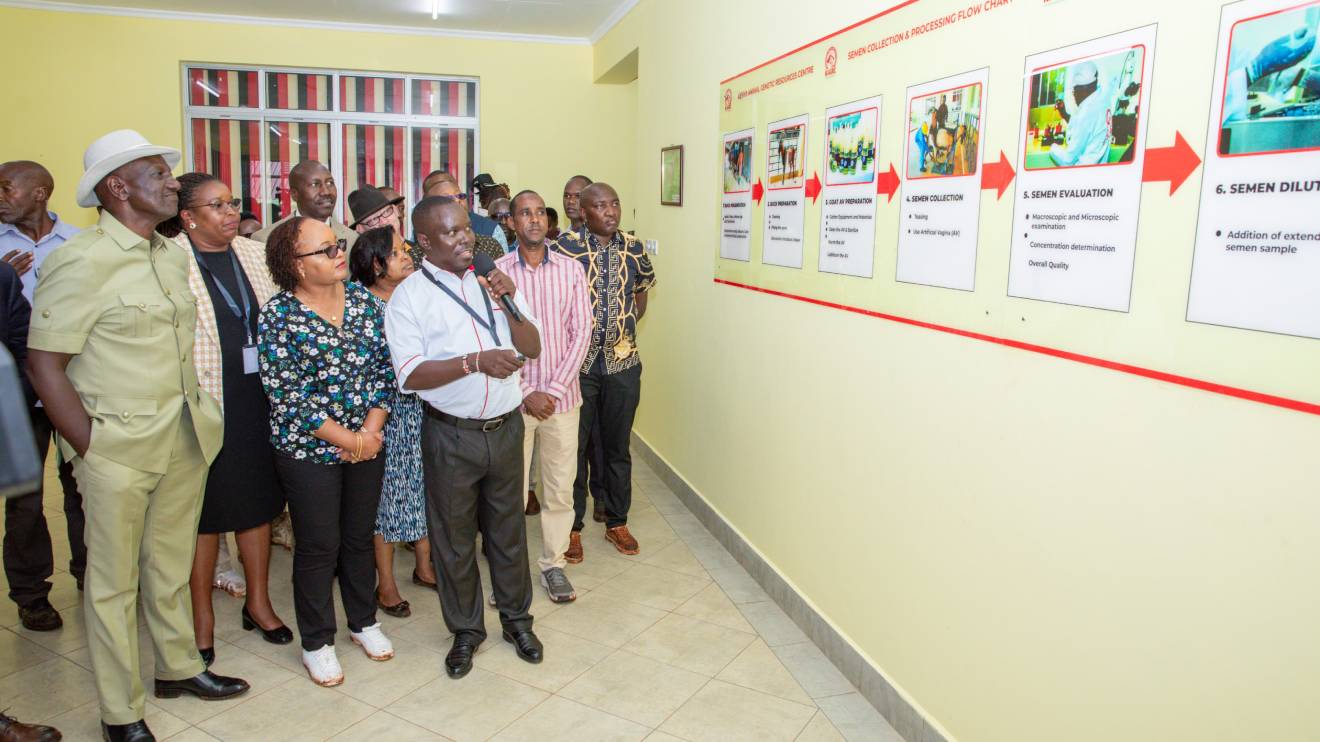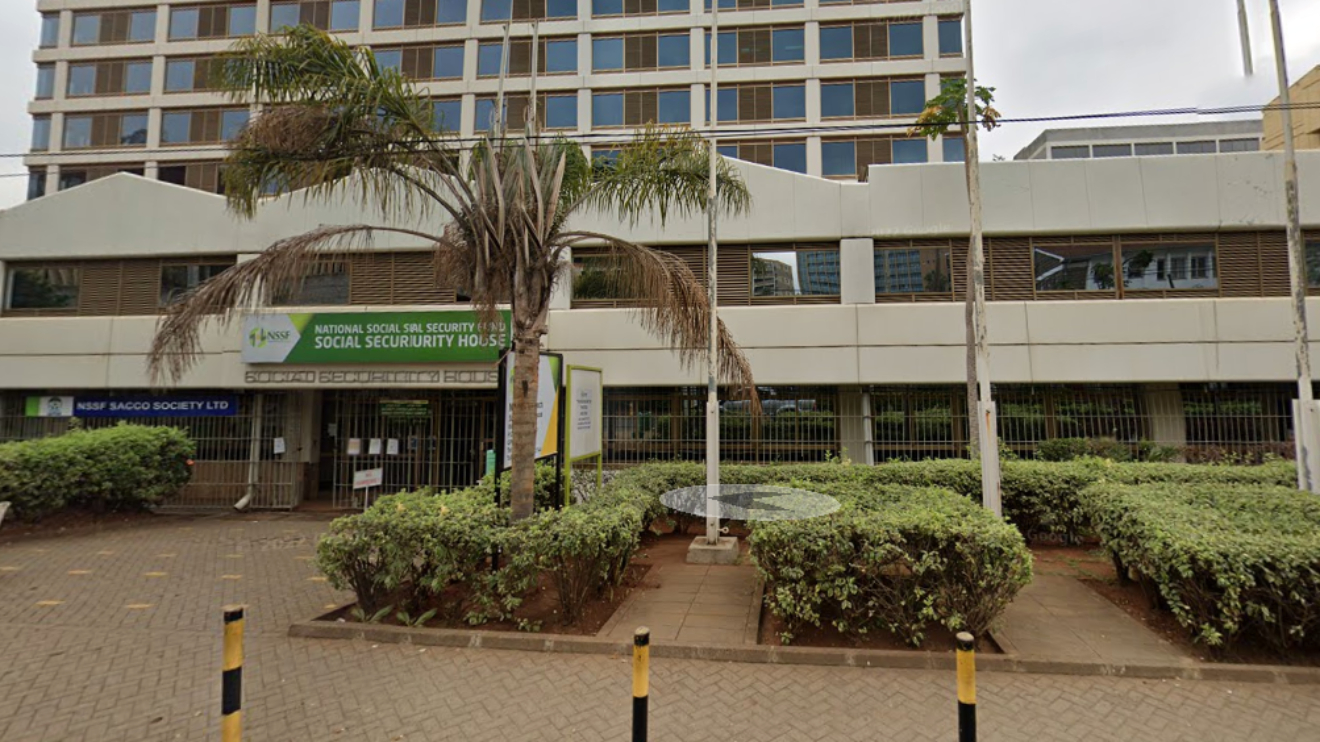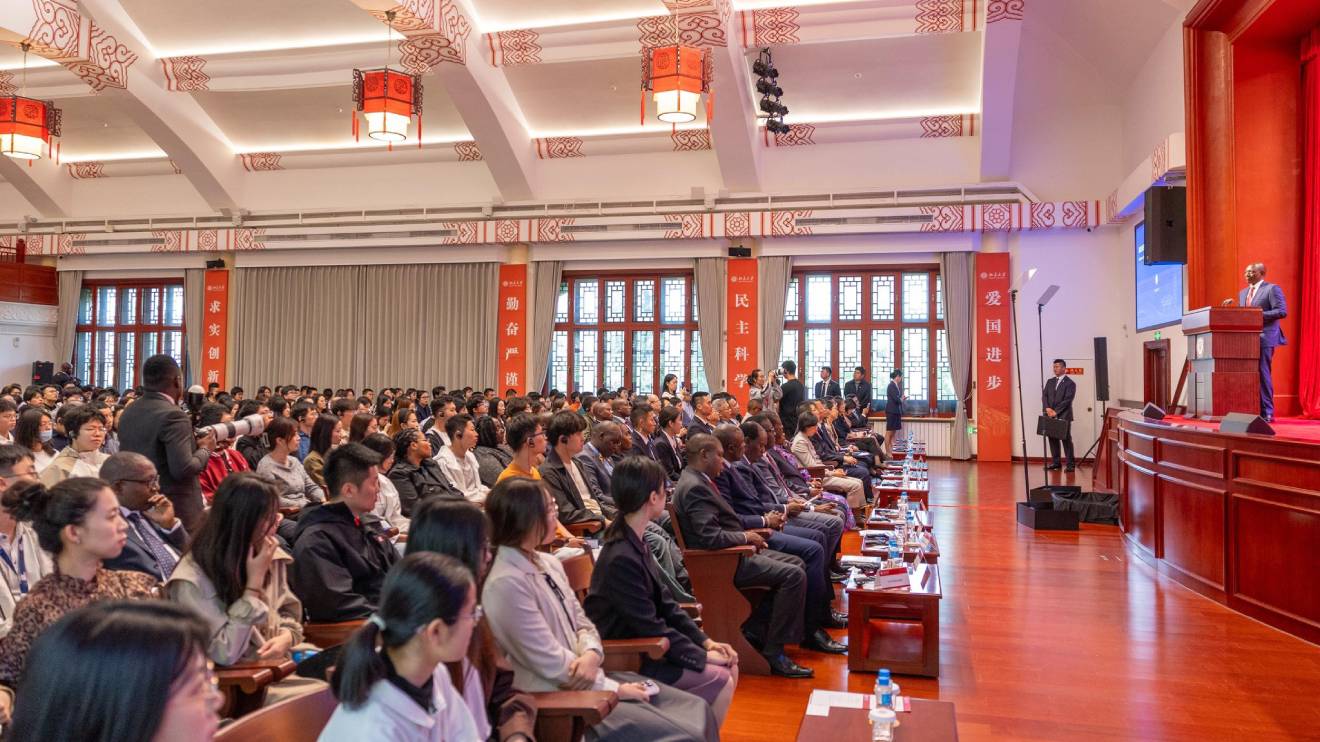Hundreds of smallholder farmers in Kirinyaga County are experiencing improved earnings and productivity following the rollout of a goat artificial insemination (A.I.) programme jointly implemented by the County Government and the Goat A.I. Centre based at the Kenya Animal Genetic Resources Centre (KAGRIC) in Kutus.
The initiative, which was recently launched by President William Ruto, has already provided subsidised hybrid goat semen and liquid nitrogen worth Sh354,000.
According to the County Government, 600 farmers organised into 60 groups have so far received support through access to improved kids, does, and community breeding bucks.
Governor Anne Waiguru hailed the establishment of the centre as a major stride for Kirinyaga and the nation at large.
“We are particularly honored to host the Goat AI Centre at Ndomba, which is not only a great treasure for our County but also a key development milestone for our Country. This centre is a significant step forward in improving goat production and food security,” Waiguru stated.
Read More
She added that farmers now have better access to superior goat breeds, with trained inseminators already operating throughout the county.
She remarked, “With the right genetic improvements and more efficient farming practices, we can unlock the full potential of goat farming and provide a steady supply of quality products to meet expanding markets.”
The County Government is also helping reduce the cost burden by subsidising services and educating farmers on the benefits of artificial insemination.
One beneficiary, Peter Njoroge from Mwea, attested to the economic impact of the improved breeds.
“The new breed of goats are now growing faster and now I have a bigger herd and milk production has increased and so are my earnings.”
Njoroge currently keeps nine goats, each producing about two litres of milk daily, which he sells for Sh170 per litre to a Thika-based company.
In Kithiriti, farmer Robinson Karuri is raising eight goats conceived through the programme.
Sharing his experience, he said, “I am happy because I recently got goat kids of the Agro-Nubian breed, which are strong and produce a lot of milk. We use some at home and sell the rest.”
He noted that the county’s support helped avoid high private sector costs, adding, “The subsidised A.I. from the county government has helped us a lot given that it could have cost them around Sh5,000 to source insemination for one goat from the private providers.”
Governor Waiguru pointed out that goat milk and meat are in high demand in hospitals, hotels, and restaurants, and that the programme is designed to make goat farming a viable commercial venture.
“This initiative aims to equip farmers with technology, quality breeds, and skills to increase productivity thus transforming goat farming from traditional subsistence activity into a modern, profitable agribusiness, changing lives, one goat at a time," Waiguru stated.
Due to their resilience, affordability, and smaller land requirements, goats are proving an ideal choice for climate-affected regions and low-income households.
Their faster reproduction cycle also allows quicker returns on investment, while goat milk remains a premium product for the elderly, infants, and people with lactose intolerance.



 (1)-1727972556.jpg)



-1729145378.jpg)


-1745865803.png)